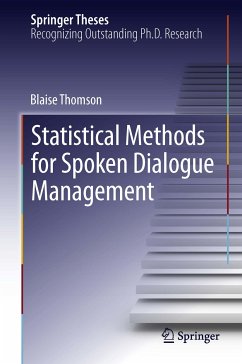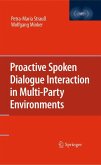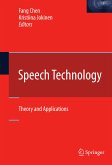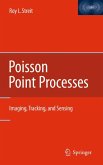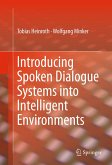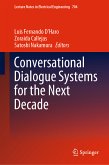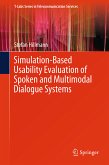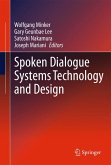Statistical methods for spoken dialogue management takes a radically different view. It treats dialogue as the problem of inferring a user's intentions based on what is said. The dialogue is modelled as a probabilistic network and the input speech acts are observations that provide evidence for performing Bayesian inference. The result is a system which is much more robust to speech recognition errors and for which a dialogue strategy can be learned automatically using reinforcement learning. The thesis describes both the architecture, the algorithms needed for fast real-time inference over very large networks, model parameter estimation and policy optimisation.
This ground-breaking work will be of interest both to practitioners in spoken dialogue systems and to cognitive scientists interested in models of human behaviour.
Dieser Download kann aus rechtlichen Gründen nur mit Rechnungsadresse in A, B, BG, CY, CZ, D, DK, EW, E, FIN, F, GR, HR, H, IRL, I, LT, L, LR, M, NL, PL, P, R, S, SLO, SK ausgeliefert werden.

